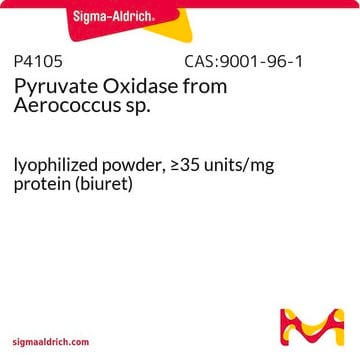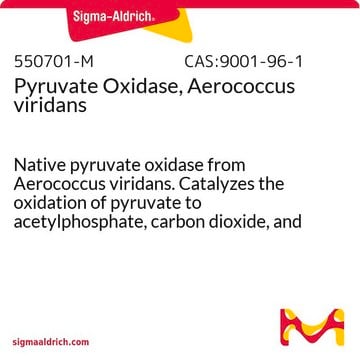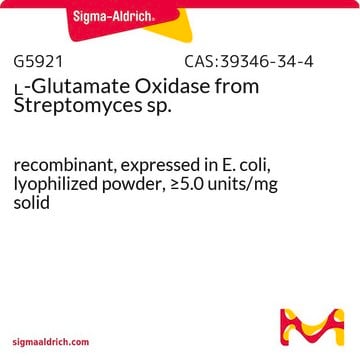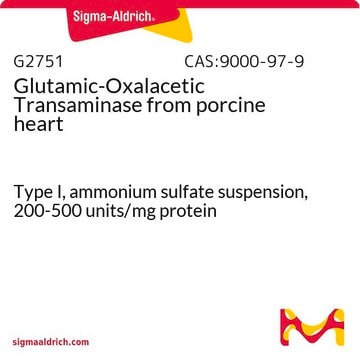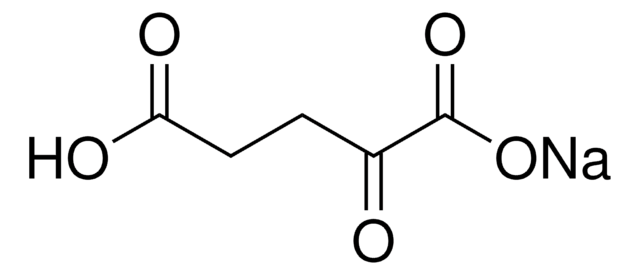P4591
Pyruvate Oxidase from microorganisms
lyophilized powder, ≥1.5 U/mg
Synonyme(s) :
Pyruvate:oxygen oxidoreductase (phosphorylating)
About This Item
Produits recommandés
Forme
lyophilized powder
Niveau de qualité
Activité spécifique
≥1.5 U/mg
Poids mol.
~260 kDa
Température de stockage
−20°C
Application
Actions biochimiques/physiologiques
Propriétés physiques
Michaelis constant : 3.4 X 10-4M (Pyruvate)
Inhibitors : Fe++,Zn++,Cu++,Ag+,Hg++
Optimum pH : 5.7
Optimum temperature : 65oC
pH Stability : pH 5.7 - 6.5 (25oC, 20hr)
Thermal stability : below 45oC (pH 6.0, 15min)
Définition de l'unité
Forme physique
Mention d'avertissement
Danger
Mentions de danger
Conseils de prudence
Classification des risques
Resp. Sens. 1
Code de la classe de stockage
11 - Combustible Solids
Classe de danger pour l'eau (WGK)
WGK 3
Point d'éclair (°F)
Not applicable
Point d'éclair (°C)
Not applicable
Équipement de protection individuelle
Eyeshields, Gloves, type N95 (US)
Certificats d'analyse (COA)
Recherchez un Certificats d'analyse (COA) en saisissant le numéro de lot du produit. Les numéros de lot figurent sur l'étiquette du produit après les mots "Lot" ou "Batch".
Déjà en possession de ce produit ?
Retrouvez la documentation relative aux produits que vous avez récemment achetés dans la Bibliothèque de documents.
Les clients ont également consulté
Protocoles
Protocol for Assay Procedure for Pyruvate Oxidase Bacterial
Notre équipe de scientifiques dispose d'une expérience dans tous les secteurs de la recherche, notamment en sciences de la vie, science des matériaux, synthèse chimique, chromatographie, analyse et dans de nombreux autres domaines..
Contacter notre Service technique